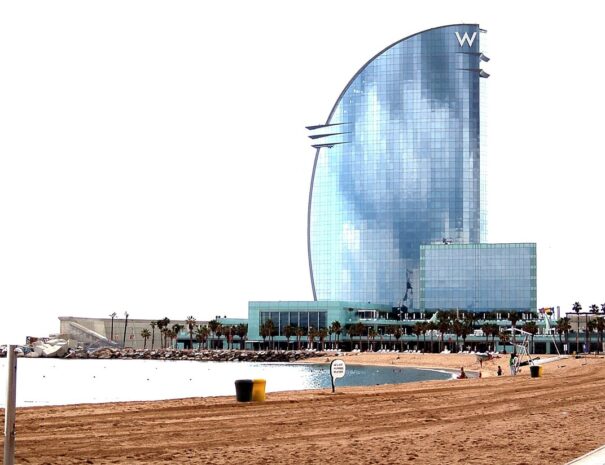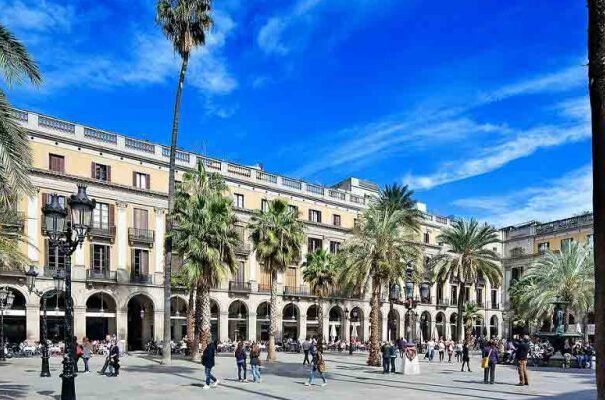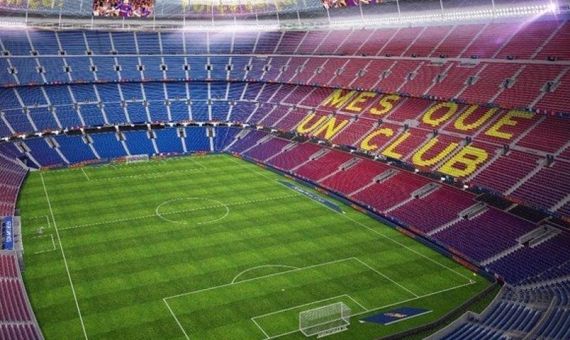
La Barceloneta
Check out our full guide to La Barceloneta, Barcelona’s famous urban beach. There are a ton of tourist traps, and here you find how to avoid them. … Read More
Barcelona’s Cathedral is dedicated to the patron saint of the city, Saint Eulalia. The beginning of the church dates back to the 5th Century.
However, the impressive view of the cathedral was built in the 19th Century when the façade and other parts of the temple were redecorated in neo-gothic style by the architects J. Oriol Mestres and August Font. You must visit the crypt under the main altar – one of the most outstanding parts of the cathedral. Many people think La Sagrada Familia from Gaudi is the cathedral of Barcelona.

The history of the Cathedral of Barcelona is long. Already in 559, at the time of a council, there was a cathedral (consecrated to the Holy Cross and Santa Eulalia) Damaged by Almanzor in 985 and rebuilt as a Romanesque cathedral by Ramón Berenguer between 1045-58. Eventually, in 1298, it was completed in Gothic style as it is the case with of Spain´s most impressive cathedrals.
The San Ivo Gate and part of the transept have survived as Romanesque. The apse was added between 1317-70, the vaulting in the transept was finished in 1381 and further work was undertaken between 1417-22. The façade, however, is 19C, built by J.Oriol Mestres and August Font, to the designs of Master Carlí (1405).
The most impressive parts of the cathedral of Barcelona are the two octagonal towers over the transepts. The dome is not in the usual position over the crossing, but at the beginning of the nave as it is in the cathedrals of Freiburg and Ulm. Inside there are a nave and two aisles with ribbed vaulting constructed in such a way as to give the impression of seven vaults.
The Crypt of St. Eulalia, under the high altar, has flat, 12-part vaulting. It contains the saint’s marble sarcophagus, with reliefs by a student of Giovanni Pisano; 14C bishop’s stool behind the altar.
The San Ivo Gate is the oldest part of the cathedral and its façade has Romanesque arches and windows, as well as ancient reliefs of men and animals in battle posture.
Some small chapels (4 to 9) arranged around the apse have good paintings, the most notable of which is the Transfiguration by Bernat Martorell. Near the sanctuary, against a wall, is the tomb of the founder of the Romanesque cathedral, Ramón Berenguer, and his wife Almodis. The octagonal wooden pulpit near was completed in 1390 and is a fine piece of ironwork. The upper choir stalls are older than the lower ones.

Baroque features were introduced in the 16C. In 1519 a meeting of the Order of the Golden Fleece was held in the cathedral, and this gave Juan de Borgoña the opportunity of putting the coats-of-arms of the invited monarchs (Henry VIII, Fritz I, etc.) on the stalls reserved for them. The choir screen is the work of the artists Bartolemé Ordóñez and Pere Vilar and dates from 1517.
The San Raimundo Chapel contains the Gothic tomb of St. Raymond of Peñafort, which was retrieved from the ruined church of Santa Catalina. The Porta San Severo leads to the cloisters, which have four groin-vaulted galleries and a garden with very old trees (16,17). In the middle of the vaulting, there is a terracotta relief of St. George by Antoni Claperós (15C).
The Chapel of Santa Lucía, at the end of the cloisters, was consecrated to the Virgin Mary in 1268. The chapel’s façade has a typically Romanesque portal, including columns with decorated capitals. The font is 14C. Near the chapel is the chapterhouse.
The Museo Capitular houses a valuable altarpiece by Bermejo, St. Eulalia’s missal by Ramón Destorrent, a predella by Bernat Martorell and a 14C altar from Italy by S.di Pietro. In the Capilla del Santísimo (24), the Secretaria del Capitulo, contains the holy shrine of San Olegario and above it’Christ from Lepanto’ on the Cross.
The church treasure includes a Gothic monstrance, a selection of 15 C jewels and a Throne of silver gilt.

Check out our full guide to La Barceloneta, Barcelona’s famous urban beach. There are a ton of tourist traps, and here you find how to avoid them. … Read More

Check out our full guide to The Gothic Quarter of Barcelona, one of the most beautiful and historic areas of the city. … Read More

Check out our full guide to Port Aventura one of the premier amusement parks in all of Spain, and a great place to visit if you have kids. … Read More

Check out our full guide to the Camp Nou, the legendary soccer stadium, home of Barcelona FC, one of the best clubs in Europe of all time. … Read More
is proudly powered by WordPress